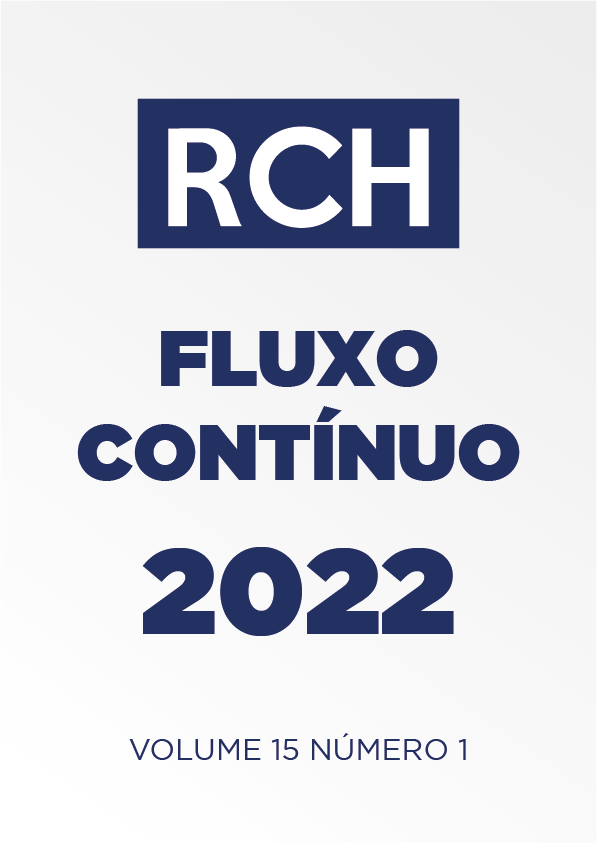THE CLINIC AND THE EDUCATION
bell hooks and Paulo Freire in psychotherapy contexts
DOI:
https://doi.org/10.32813/2179-1120.2022.v15.n1.a895Keywords:
Psychotherapy, Psychology, Education, Transdisciplinarity, Everyday lifeAbstract
This essay seeks, starting from academic-scientific productions in the field of Psychology about contemporary clinical processes, to appropriate concepts from the field of Education, namely the production of bell hooks (love) and Paulo Freire (dream and boniteza), to promote theoretical instruments that allow approaching clinical topics that arise from everyday experiences. The transdisciplinary look at the human sciences allows increasing the range of tools in the intervention with subjects who experience common challenges for professionals who are willing to work with the object of contemporary interpersonal relationships, allowing sensitive, affective and accessible instruments to be of immense importance regardless of the professional context. The present reflection hopes, in addition to promoting the application of the terms provided in the work in a clinical context, to promote more and more transdisciplinary theoretical-professional reflections in the field of human sciences.
Metrics
References
Augé, M. (2012). Para onde foi o futuro?. São Paulo: Papiro.
Bridle, J. (2019). A nova idade das trevas: a tecnologia e o fim do futuro. Todavia.
Cabanas, E., & Illouz, E. (2019). Manufacturing happy citizens: How the science and industry of happiness control our lives. John Wiley & Sons.
Crary, J. (2016). 24/7: capitalismo tardio e os fins do sono. Ubu Editora LTDA-ME.
Dunker, C. (2021). A hipótese depressiva. In Safatle, V., da Silva Junior, N., & Dunker, C. Neoliberalismo como gestão do sofrimento psíquico. Autêntica Editora.
Franco, F., Castro, J. C. L. D., Manzi, R., Safatle, V., & Afshar, Y. (2021). O sujeito e a ordem do mercado: gênese teórica do neoliberalismo. In Safatle, V., da Silva Junior, N., & Dunker, C. Neoliberalismo como gestão do sofrimento psíquico. Autêntica Editora.
Freire, P. (2005). Pedagogia da autonomia: saberes necessários à prática educativa. São Paulo: Paz e Terra.
Freire, P.(2014). Pedagogia da Indignação: Cartas Pedagógicas e Outros Escritos. São Paulo: Paz e Terra.
Freire, P. (2021). Professora sim, tia não: Cartas a quem ousa ensinar. Rio de Janeiro/São Paulo: Paz e Terra.
Freitas, A. L. S. (2015). Sonho Possível. In. Streck, D. R., Redin, E., & Zitkoski, J. J. (Eds.). Dicionário Paulo Freire. Autêntica.
Hooks, B. (2001). All about love: New visions. Harper Perennial.
Hooks, B. (2013). Ensinando a transgredir: a educação como prática da liberdade. São Paulo: WMF Martins Fontes.
Kehl, M. R. (2015). O tempo e o cão: a atualidade das depressões. Boitempo Editorial.
Mignolo, W. D. (2003). Histórias locais-projetos globais: colonialidade, saberes subalternos e pensamento liminar. Editora UFMG.
Neves, A., Ismerim, A., Brito, B., Costa, F. D., Santos, L. R. P., Senhorini, M., Junior, N. S., Beer, P., Bazzo, R., Golsanves, R., Coelho, S. P., & Carnizelo, V. C. R. (2021). A psiquiatria sob o neoliberalismo: da clínica dos transtornos ao aprimoramento de si. In Safatle, V., da Silva Junior, N., & Dunker, C. Neoliberalismo como gestão do sofrimento psíquico. Autêntica Editora.
Nicolescu, B. (2018). O manifesto da transdisciplinaridade. São Paulo: TRIOM.
Piketty, T. (2014). O capital no século XXI. Editora Intrínseca.
Redin, E. Boniteza. (2015). In. In. Streck, D. R., Redin, E., & Zitkoski, J. J. (Eds.). Dicionário Paulo Freire. Autêntica.
Safatle, V. (2021). A economia é a continuação da psicologia por outros meios: sofrimento psíquico e o neoliberalismo como economia moral In. Safatle, V., da Silva Junior, N., & Dunker, C. Neoliberalismo como gestão do sofrimento psíquico. Autêntica Editora.
Zuboff, S. (2021). A era do capitalismo de vigilância. Editora Intrinseca.
Downloads
Published
How to Cite
Issue
Section
License
Copyright (c) 2022 Human Sciences Journal - RCH

This work is licensed under a Creative Commons Attribution 4.0 International License.
The publications of the Human Sciences Journal are registered under the Creative Commons Attribution CC-BY license.
1. The contents of the manuscripts are the exclusive responsibility of their author.
2. It is allowed the total or partial reproduction of manuscripts published in the journal, provided that the source is cited.
3. When submitting their manuscript to the Journal, the authors certify that they are of their own authorship and unpublished (not published in any digital or printed media).
4. The copyright of the articles published in the Journal are of the author, with first publication rights reserved for this journal.
5. For disclosure purposes, the Journal may replicate the works published in this journal in other media, such as social networks (Facebook, Academia.Edu, etc.).
6. The Journal is of public access, therefore, the authors who submit manuscripts agree that they are of free use.
7. In case of any illegality, fraud, or other attitude that puts in doubt the honesty of the publication, especially the practice of plagiarism, the manuscript will be automatically rejected.
8. If the manuscript has already been published, it will be immediately removed from the base of the Journal, its citation linked to the Journal will be prohibited and the cancellation of the referred publication shall be reported in the next issue of the one in which the article was published. In case of the procedure for the withdrawal of the paper the authors will be informed beforehand, being guaranteed the right to a broad defense.
9. The personal data provided by the authors will be used exclusively for the services provided by this publication and will not be made available for other purposes or to third parties.





